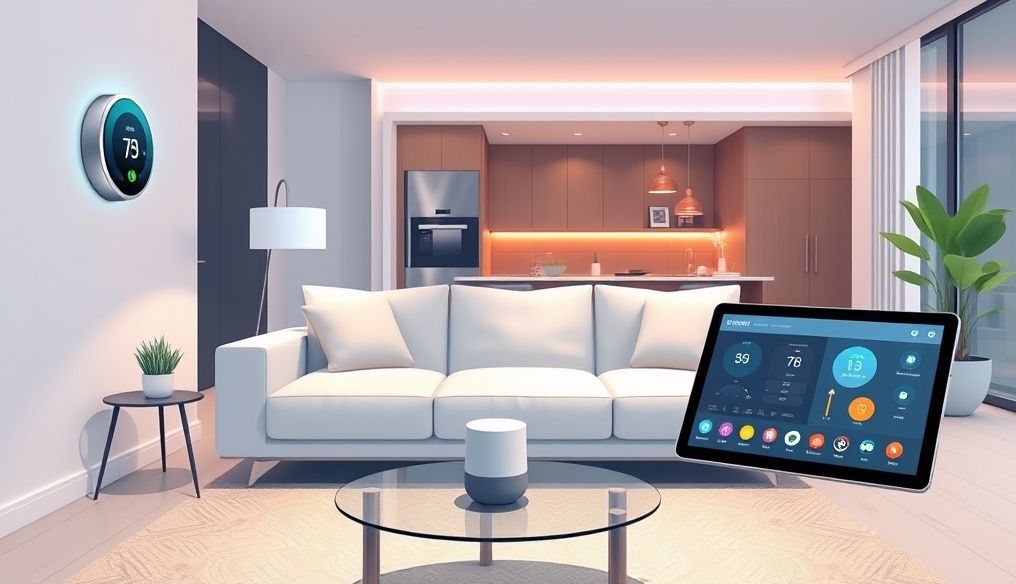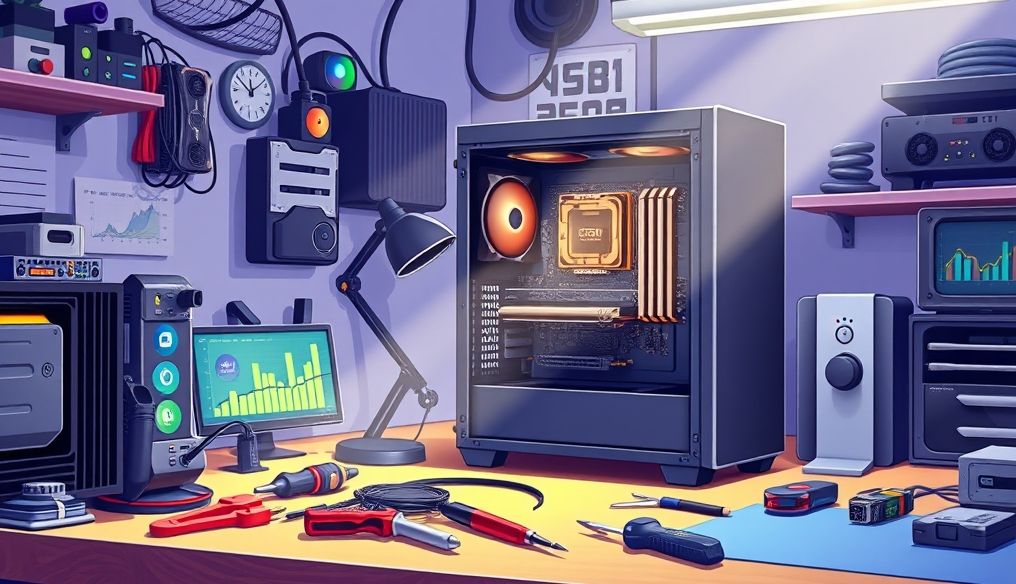Are Smart Homes a Good Idea? And How Do You Start?
With the rapid technological advancements, smart homes have become a reality. But are they just a passing fad or do they represent the future of housing? And are they worth the investment? This article answers these questions and provides you with a comprehensive guide to starting your journey towards a smart home.
What is a Smart Home?
A smart home is a home equipped with devices and systems connected to the internet, allowing you to control them remotely and automate certain tasks. This includes lighting, heating, cooling, security, home appliances, entertainment, and more.
Basic Components of a Smart Home:
- Smart Devices: Such as smart bulbs, smart thermostats, smart security cameras, and voice assistants.
- Control Hub: This is the device that connects all smart devices to each other and allows you to control them from one place. The control hub can be a dedicated device or an application on your smartphone or tablet.
- Internet Network: Necessary to connect smart devices to the control hub and enable you to control them remotely.
Advantages of Smart Homes
Smart homes offer many advantages that make them an attractive option for many:
1. Convenience and Ease:
Imagine being able to control your home's lighting, heating, and appliances from anywhere in the world, or having your home automatically turn lights on and off based on your presence. This is what smart homes offer you. You can also automate some routine tasks, such as running the dishwasher or preparing coffee in the morning.
2. Energy Saving:
Smart homes allow you to control energy consumption better. You can automatically adjust your home's temperature based on a schedule or based on your presence, and turn off unused lights and appliances remotely. This can lead to significant savings on energy bills.
3. Security:
Smart homes provide advanced security features, such as smart security cameras, motion sensors, and alarm systems. You can monitor your home remotely and receive alerts if anything unusual happens.
4. Increased Property Value:
Smart homes can increase the value of the property. A smart home is an attractive feature for potential buyers, especially those looking for convenience, security, and modern technology.
5. Improved Lifestyle:
A smart home can improve your lifestyle in general. For example, you can use voice assistants to play music, read the news, or control other devices. You can also use smart devices to monitor your health and fitness.
Disadvantages of Smart Homes
Despite the many advantages, smart homes also have some drawbacks that should be considered:
1. Cost:
Smart homes can be expensive, especially if you want to equip your entire home with the latest technologies. However, you can start by equipping some key areas of your home and gradually expanding the scope of smart devices.
2. Complexity:
Setting up and operating some smart devices can be complex, especially if you don't have experience in the field of technology. However, there are many resources available online that can help you set up and operate your smart devices.
3. Security Risks:
Smart homes are vulnerable to hacking, where hackers can access and control your smart devices. However, you can protect your smart home by taking some security precautions, such as using strong passwords and updating software regularly.
4. Dependence on the Internet:
Smart homes rely on the internet to function. If the internet goes down, you may lose the ability to control some of your smart devices.
5. Compatibility:
Not all smart devices may be compatible with each other. Before buying any smart device, make sure it is compatible with other devices you have in your home.
How to Start Building Your Smart Home?
If you are interested in building a smart home, here are some tips to get started:
1. Identify Your Needs:
Before you start buying any smart devices, identify your needs and priorities. What problems do you want to solve? And what features are you interested in?
2. Start Small:
Don't try to equip your entire home with smart devices at once. Start by equipping some key areas of your home, such as the living room or bedroom, then gradually expand the scope of smart devices.
3. Choose Compatible Devices:
Make sure the smart devices you buy are compatible with each other. You can use a control hub to connect all smart devices to each other.
4. Look for Deals:
Smart devices can be expensive, so look for deals and discounts before buying.
5. Learn How to Use the Devices:
Read the instructions carefully and learn how to use smart devices correctly. There are many resources available online that can help you with this.
6. Secure Your Smart Home:
Take some security precautions to protect your smart home from hacking. Use strong passwords and update software regularly.
Examples of Smart Devices You Can Start With:
- Smart Bulbs: Allow you to control the lighting remotely and change colors and brightness.
- Smart Thermostats: Allow you to control your home's temperature remotely and save energy.
- Smart Security Cameras: Allow you to monitor your home remotely and receive alerts if anything unusual happens.
- Voice Assistants: Allow you to control other devices with your voice.
- Smart Smoke and Carbon Monoxide Detectors: Alert you in case of danger.
The Future of Smart Homes
The future of smart homes looks promising. As technology continues to evolve, smart homes will become smarter, easier to use, and more secure. We expect to see more smart devices that integrate with our daily lives and make them more convenient and efficient.
Conclusion
Smart homes are a good idea if you are looking for convenience, security, and energy saving. However, you should be aware of the potential costs and security risks. Start small, choose compatible devices, and learn how to use them correctly. With proper planning, you can turn your home into a smart home that suits your needs and budget.




